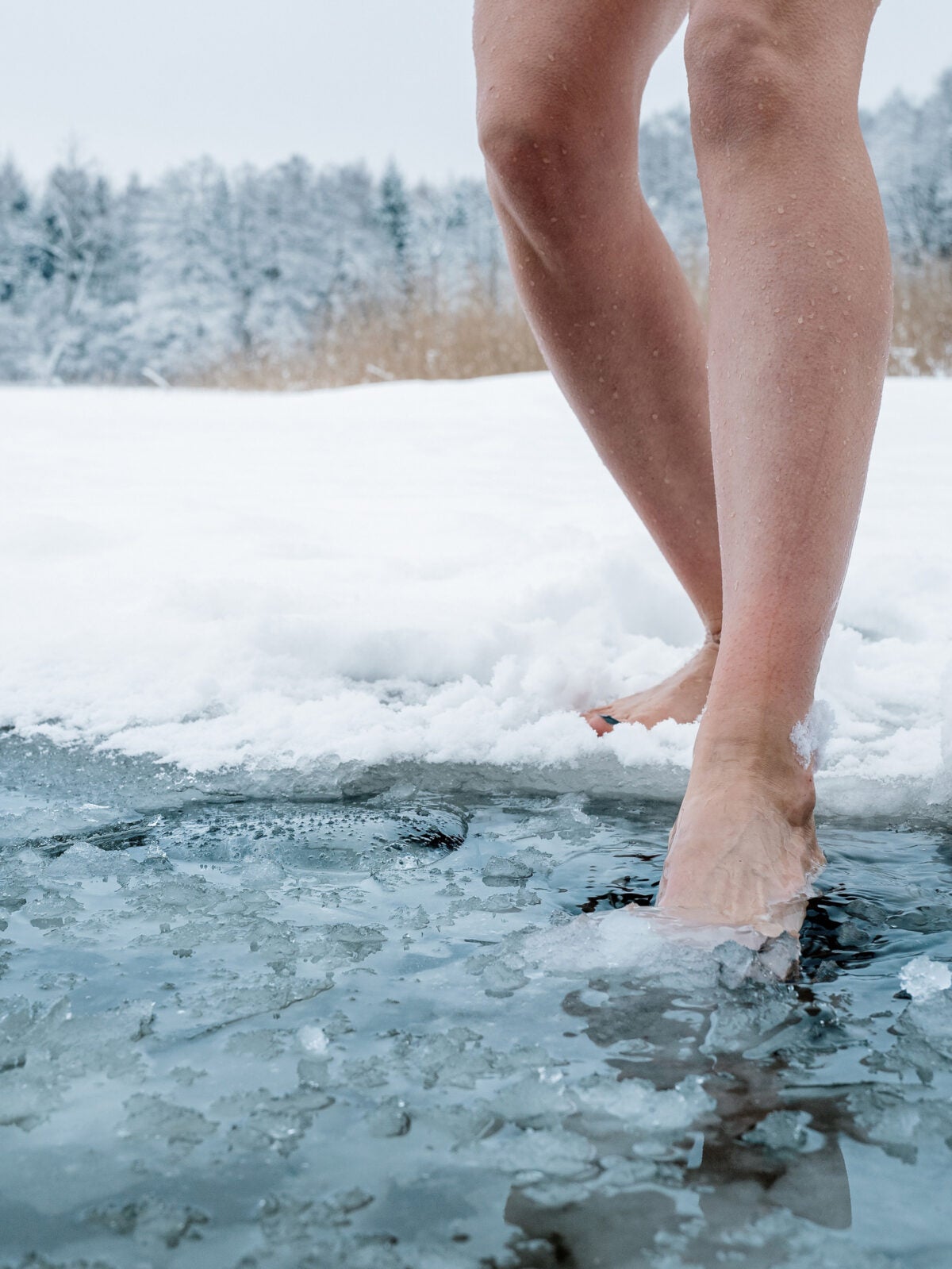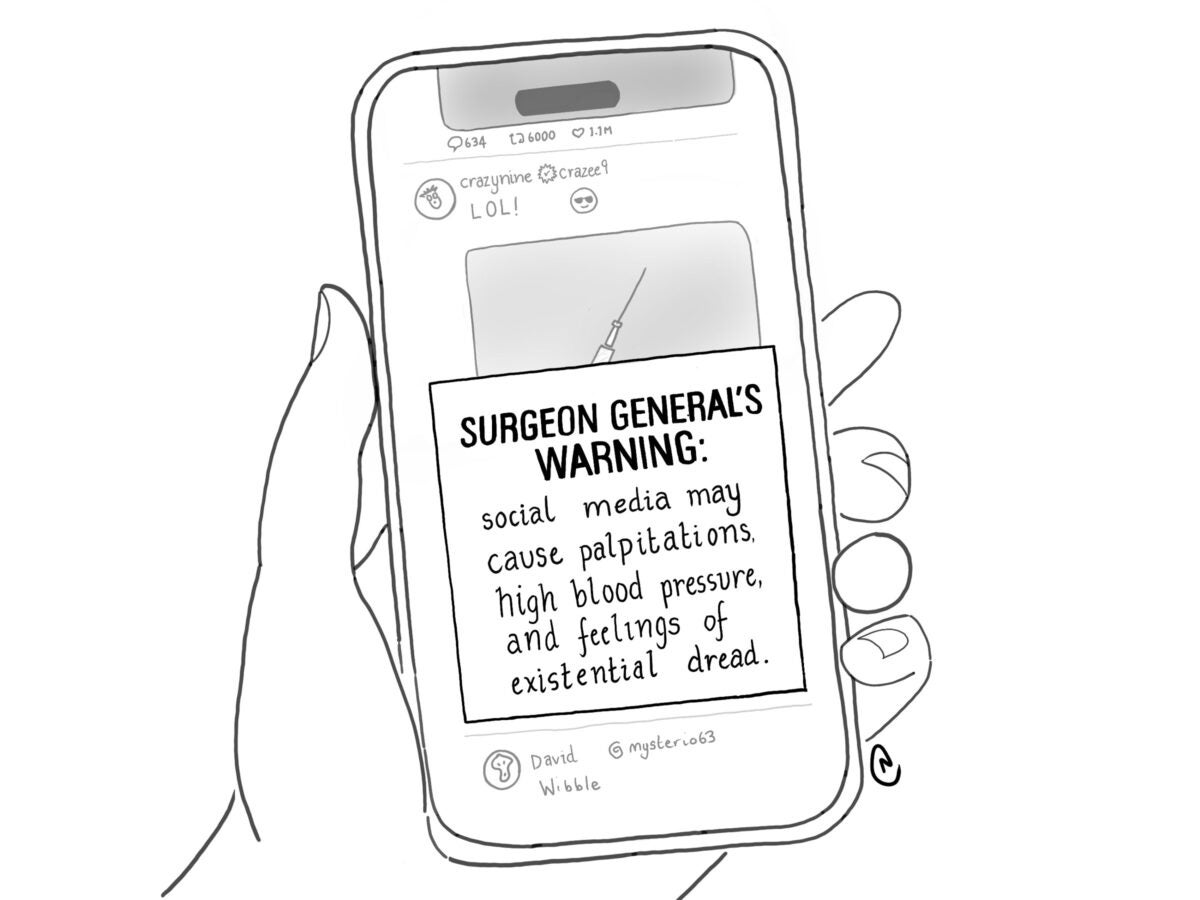
Essay
A dive into cold water
Cold water swimming has become surprisingly popular in the United Kingdom. Half a million people swim in England’s lakes, rivers, and sea regularly, even in winter. Part of the community’s zeal for the sport are deeply held beliefs about its health benefits, from the simple fact of physical exercise to its potential for treating mental health concerns. Many cold water swimmers have long believed the activity helps treat depression.
I’m a cold water swimmer myself, and a medical doctor. I became fascinated with cold water swimming when I worked as a doctor in the Orkney Islands, an archipelago on Scotland’s northern coast. I swam with a group called the Orkney Polar Bears, and we frequently paddled by sunken ships, imposing sea cliffs, and the standing stones at the Ring of Brodgar.
Then I moved to London to work at the Royal Free Hospital, where I heard about a group called The Royal Freeze. To join, you must swim in the local ponds right in the middle of north London in water below 50° Fahrenheit. This earns you a swimming cap—hot pink with ‘Royal Freeze Swim’ emblazoned on it in old-fashioned typeface. It is the most sought after item at the hospital.
Sign up for Harvard Public Health
Delivered to your inbox weekly.
Indeed, cold water swimming to improve personal health is nothing new. Hippocrates believed it eased lassitude. Romantic poets saw in cold water the prospect of an encounter with the sublime. Lord Byron swam several miles across the Hellespont, and Charles Darwin sought hydrotherapy to manage depression at Malvern.
Mental health in the U.K. has been in crisis for years. In 2017, a national survey found 65% of Britons had experienced a mental health problem, with 42% saying they suffered from depression. The U.S. has faced its own share of mental health problems, with one in five Americans reporting a mental illness in 2020. A 2021 Lancet study estimated the pandemic caused an additional 53.2 million cases of depression and 76.2 million cases of anxiety disorder globally. But even as the U.K. and U.S. have been in the grips of what publications have increasingly called a mental health ‘epidemic,’ the resources to address it have not kept pace.
In fact, there is growing discussion about whether the mental health crisis might require a nonmedical answer. Anxiety, depression, and other mental health concerns have risen in parallel with pandemic-induced isolation and instability. Perhaps what we need is a social response to support our medical system. That might mean relying more on social solutions, in addition to mental health support and services.
For example, the National Institute for Health and Care Excellence, the body that reviews clinical evidence and makes recommendations for the U.K.’s National Health Service, recently advised that clinicians offer talk therapy, exercise, mindfulness, or meditation before prescribing antidepressants to patients with mild to moderate depression.
Might cold water swimming hold promise here? A 2018 case report described cold water swimming as a possible treatment for depression. A 24-year-old woman diagnosed with depression was being treated with anti-depressants and cognitive behavioral therapy but wanted to stop using medication. Her doctor recommended weekly, supervised cold water swimming. This led to an improvement in mood following each swim and a gradual reduction in her symptoms over time. Her anti-depressant medication was reduced after one month and stopped altogether after four. A year later she remained well and medication-free.
The evidence is mixed on whether cold water swimming really provides mental health benefits, and there are risks to cold water swimming from cold shock to heart arrythmia, so anyone trying it should seek advice and avoid swimming alone, especially when starting out. But ultimately, we know exercise treats depression. We think access to the outdoors helps, too. We believe that connecting to others, whether through volunteering, socializing, or work can reduce loneliness. I have found that cold water swimming checks all these boxes. Cold water swimming may also trigger endorphins, like exercise more generally, but the effects are not yet fully established. The public health lesson here is not that everyone should don a wetsuit and cut a hole in a frozen lake, but rather that efforts to promote mental health should incorporate access to green space, opportunities for exercise, and ways for people to develop community and a sense of belonging.
I moved to London during the first months of the COVID-19 pandemic, and social distancing measures made making new friends difficult. But the ponds where the Royal Freeze group swam stayed open in all but the strictest national lockdowns, so I swam regularly. But I hadn’t yet completed the Royal Freeze challenge: swimming in water under 50 degrees. And the Royal Freeze had only two swimming caps left. So, on Dec. 2, 2020, when the national curfew ended, I rose before dawn, stepped down the ladder into the icy water, and swam out into the darkness while the city lay sleeping. The chalk marks on the blackboard by the lifeguard shed told me all I needed to know: 8 degrees Celsius (46°F). I claimed my cap.
Top image: Nastco / iStock
Adam Boggon is a medical doctor and psychiatry trainee in London and a current Fulbright scholar at the Harvard T.H. Chan School of Public Health.


